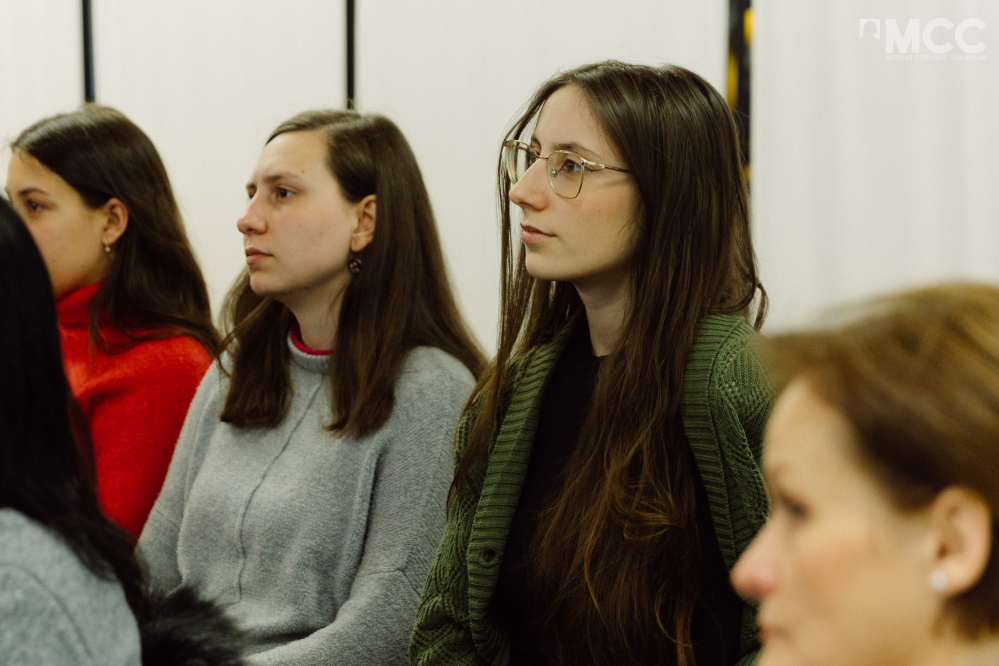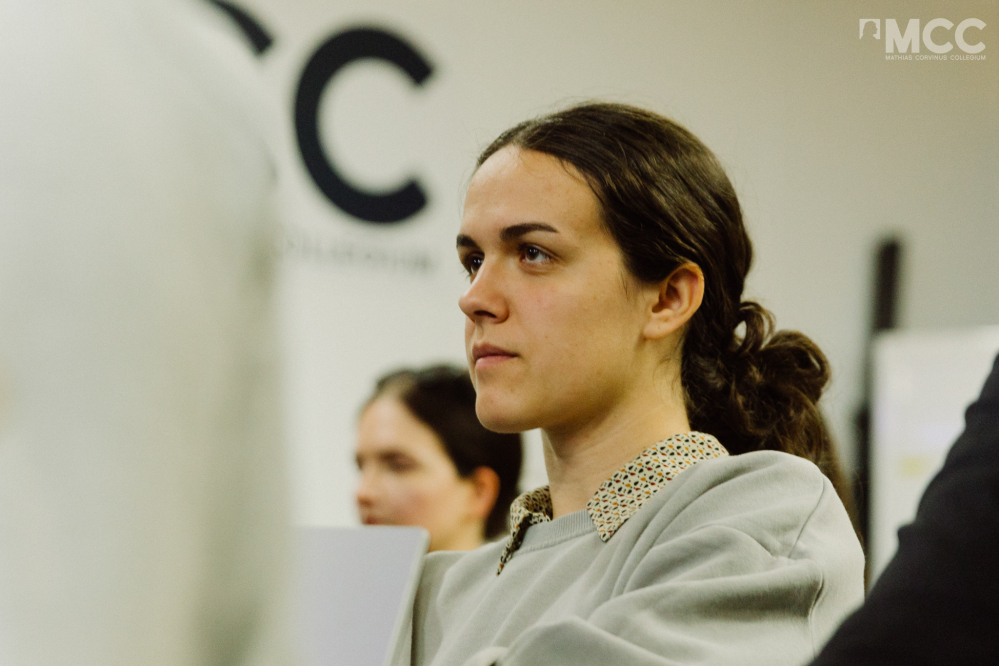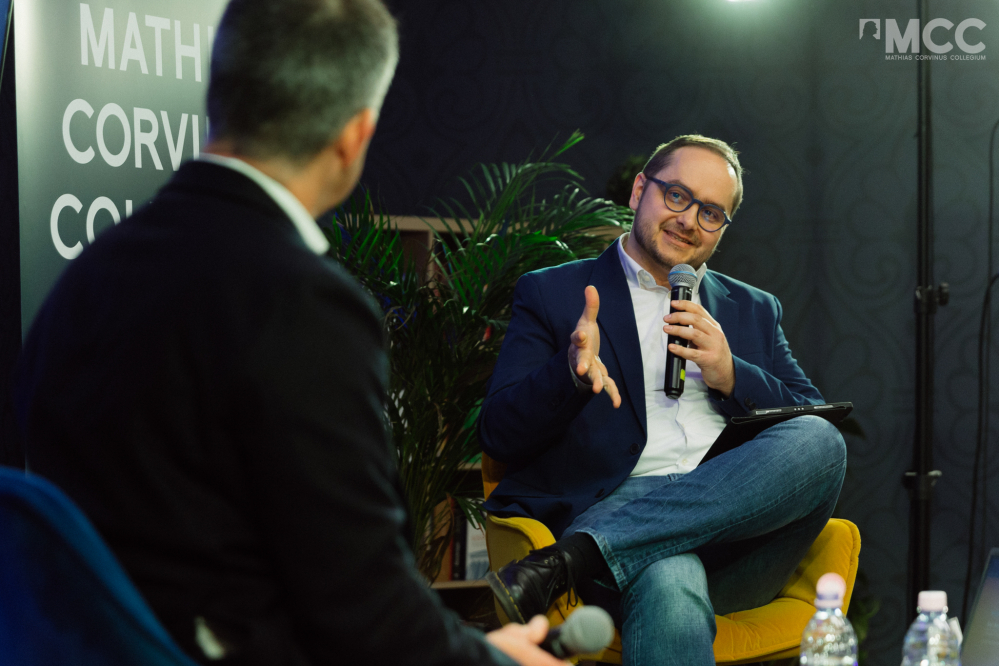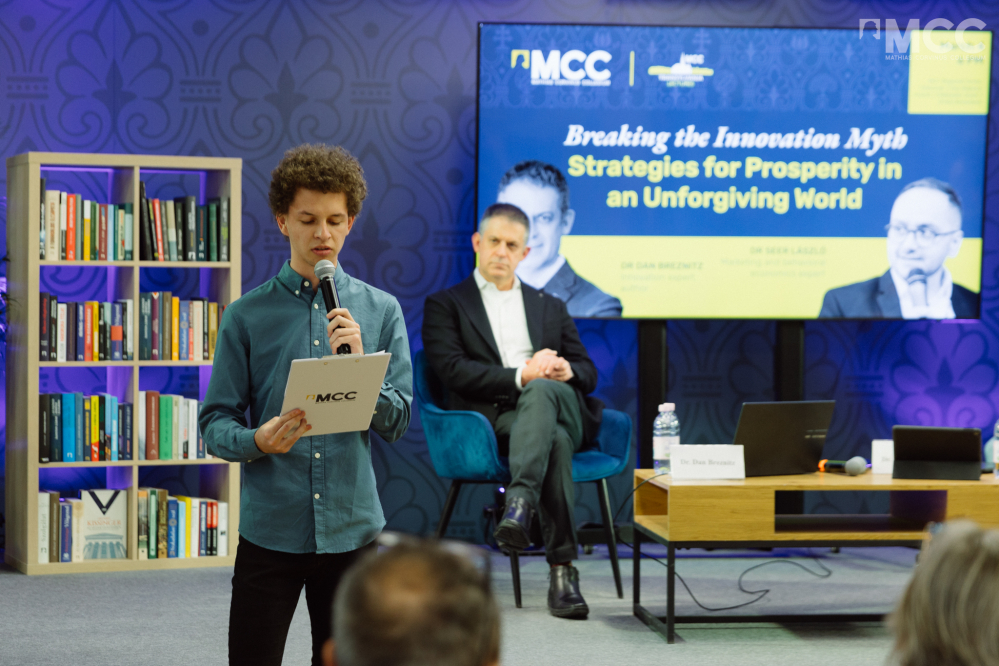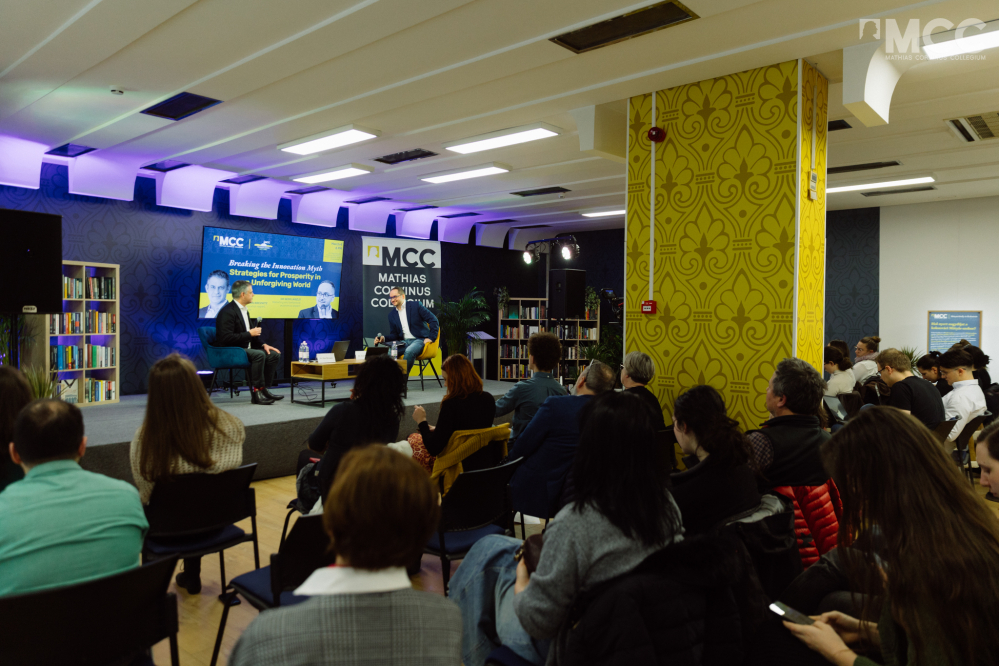Reading time: 4 minutes
A large number of cities around the world are striving to become the next Silicon Valley, but copying startup ecosystems and venture capital funds can be a costly dead end – warns Dr. Dan Breznitz, a globally recognized expert in innovation industries. What is the real solution, and what can Kolozsvár/Cluj-Napoca learn from this? The expert shed light on the misconceptions about innovation and technological development at the latest Transylvania Lectures event, organized by Mathias Corvinus Collegium (MCC) in Kolozsvár/Cluj on March 4.
Dr. Dan Breznitz, a professor at the University of Toronto, presented alternative strategies and innovative solutions necessary for achieving sustainable economic growth in Kolozsvár/Cluj Napoca, drawing on his highly successful book Innovation in Real Places: Strategies for Prosperity in an Unforgiving World. The volume won the Balsillie Prize for Public Policy, and the Financial Times listed it among the best business books of 2021. According to the visionary expert, innovation is not synonymous with inventions: “Innovation is actually the process of implementing ideas,” he explained in his lecture.
At the event organized as part of the Transylvania Lectures series, the participants were greeted by Márton Szőcs-Torma, student of the MCC University Program. The speaker conversed with Dr. László Seer, lecturer at Babeș–Bolyai University, Faculty of Economics and Business Administration.
Why Doesn’t the Silicon Valley Model Work Everywhere?
Innovation brings sustainable prosperity, yet many equate it with the discovery of new inventions and squander huge financial resources in the hope of replicating Silicon Valley’s successes, believing that startup ecosystems will create widespread prosperity. This approach creates technological hubs, while many regions continue to struggle to maintain economic dynamism.
“Every city I’ve been to wants to call itself some version of Silicon-something. Why? We have wasted billions around the world trying to copy an innovation model that is nothing more than a fantasy,” emphasized Dan Breznitz. He pointed out that only a few places – mainly in the United States – have been able to achieve success with this system, while most aspiring regions struggle with increasing inequality.
The expert suggests that communities should recognize their own unique strengths and tailor their innovation strategies to the realities of global production. Using vivid examples, he demonstrated how a region can succeed without copying the Silicon Valley model.
Riviera del Brenta, a small region in northern Italy, became a global hub for luxury shoes by mastering manufacturing technologies, collaborating with top designers, and launching specialized educational programs. “This model not only made the rich richer but also created widespread prosperity,” noted Dan Breznitz.
Although Taiwan is primarily known as a center for chip manufacturing, it actually revolutionized the bicycle industry by leveraging its expertise in semiconductor production. Companies like Giant introduced carbon fiber technology, turning Taiwan into the world’s leading manufacturer of high-end bicycle frames.
In contrast, Israel presents a thought-provoking case: although the country has become a startup powerhouse, this has led to significant social inequalities. By the 2000s, the startup sector had become the engine of the economy, generating 70 percent of the GDP, yet the money did not remain in the country; only a narrow segment became truly prosperous. “In Israel, every fifth family does not have enough money for food at the end of the month,” the speaker pointed out, referring to his own experience as a former co-founder and CEO of an Israeli software company.
“If the goal is to create widespread prosperity, the biggest mistake a region can make is to blindly pour money into venture capital funds. Policy must align with the region’s unique strengths and the realities of global production,” warned Dan Breznitz.
Innovation Must Benefit Society as a Whole
Dan Breznitz emphasized that innovation does not occur in a single moment but is a multi-step process, with each phase having a distinct economic impact. We can distinguish four main phases. The birth of new technologies and revolutionary ideas is only the beginning. The second step is planning, prototype development, and manufacturing technology – in this phase of innovation, Taiwanese companies perform exceptionally well. The next level is second-generation product and component innovation, and the fourth step is the development and refinement of efficient manufacturing processes – this is how, for example, Shenzhen became one of the world’s most important electronic manufacturing hubs.
A successful region consciously chooses where it can best position itself within this framework, rather than relying solely on the startup model, the expert asserts. He believes that developing effective innovation strategies is crucial. While many countries focus on patents, venture capital, and research, these do not always result in widespread economic benefits.
Policymakers should consider the following questions: In which industries can we compete globally? Which innovative solutions align with our existing resources? How can we help local companies grow? How can we ensure that the prosperity generated by innovation is widely accessible?
For example, in Cluj, the IT sector has experienced rapid growth, but it has also increased social inequalities. The speaker pointed out that while the city must preserve this success, the experiences gained in the IT sector should also be applied in other industries to ensure that the development of innovation does not remain an exclusive privilege of a narrow elite.

